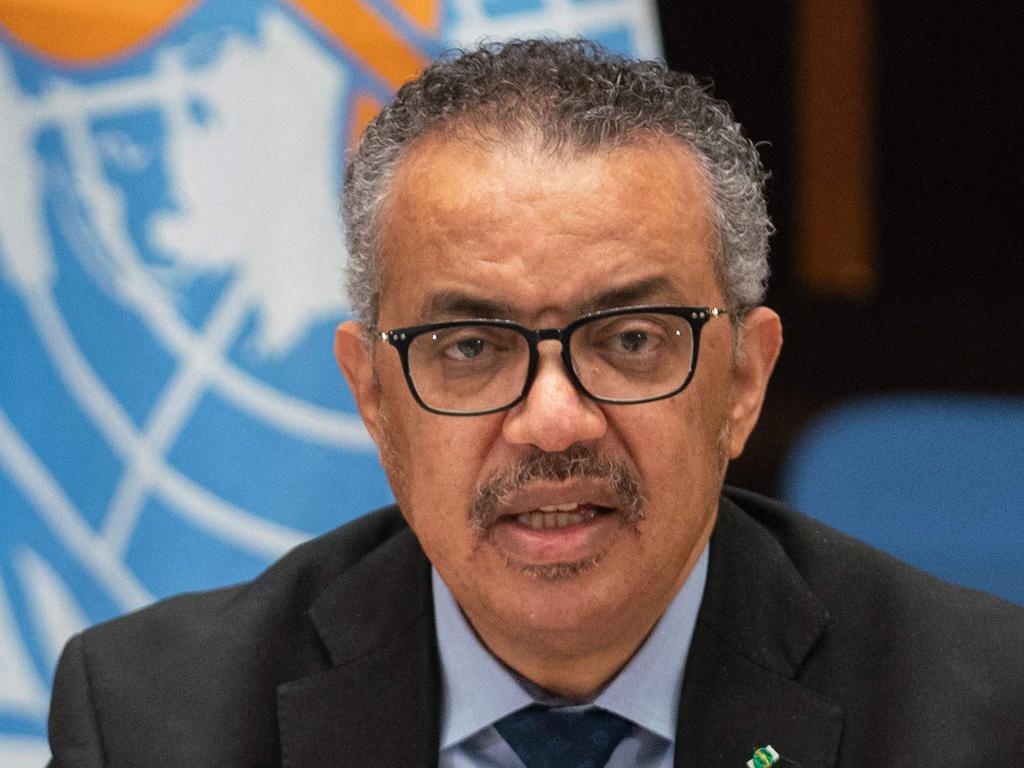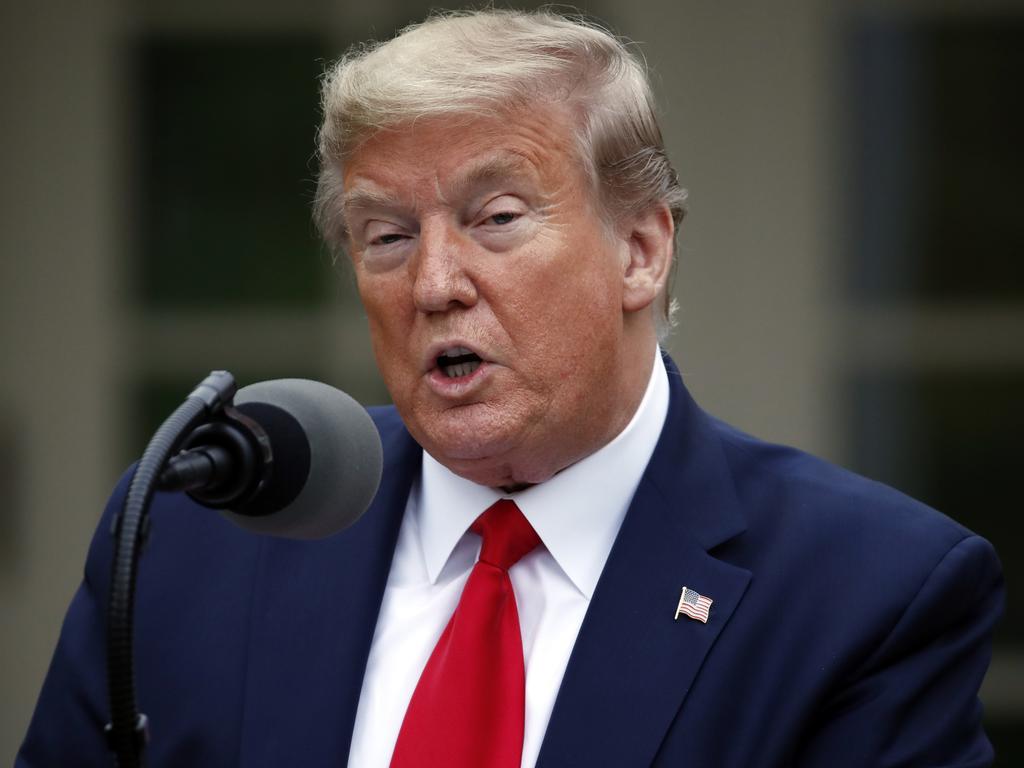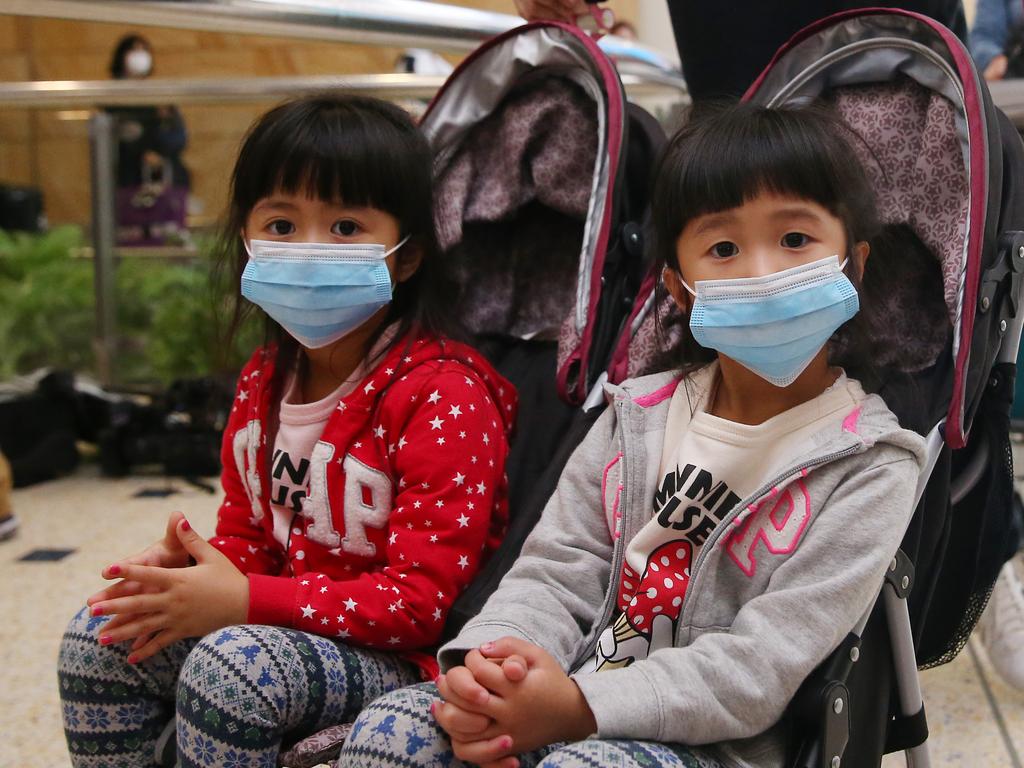
If anything, the opposite is more accurate: scientists generated hysteria and “experts” imposed an extraordinarily destructive series of responses. The virus dissipated naturally after a series of benign mutations. Despite the failure of “the health advice”, the global public health establishment is seeking ridiculously large sums of money and new powers based on the highly contested notion that naturally occurring pandemics are becoming more common.
Next week public health experts and diplomats will gather in Geneva for the 77th World Health Assembly. It’s expected to finalise a new pandemic treaty and revise international health regulations in ways that will bolster the power of the World Health Organisation.
“The next pandemic is a question of not if but when, and we cannot afford to repeat the same mistakes of the past,” WHO director-general Tedros Ghebreyesus said in his treaty pitch, rallying support for proposals that were finalised only a few days before.
So much for the four months’ notice required by the existing International Health Regulations for member states to consider any proposed changes. Thankfully, some countries and political parties are waking up to what amounts to a textbook case of bureaucracies not letting a good crisis go to waste.
“Instead of addressing the WHO’s well-documented shortcomings, the treaty focuses on mandated resource and technology transfers, shredding intellectual property rights, infringing free speech, and supercharging the WHO,” the letter to President Joe Biden said. “Some of the over 300 proposals for amendments made by member states would substantially increase the WHO’s health emergency powers and constitute intolerable infringements upon US sovereignty,” the letter added.
You might not care much for pandemic preparedness, but pandemic preparedness is interested in you – and your tax dollars.
International organisations are seeking a combined breathtaking $US31.5bn ($47.5bn) a year in public funding for what’s become known as the Pandemic Prevention, Preparedness and Response. That’s according to new analysis co-authored by David Bell, an Australian scientist who worked for eight years at the WHO.

That’s about 10 times the WHO’s current annual budget. “Countries are being asked to vote on agreements based on a misrepresentation of risk, with ridiculous budgets that cannot possibly be fully addressed but will divert funds significantly from greater health priorities,” Bell tells The Australian.
Tedros’s claim that lethal pandemics are becoming more frequent simply isn’t borne out by the data. Covid-19 was not part of an emerging trend of infectious diseases but rather a curious one-off, the origins of which are still hotly debated.
“The underlying risk and burden of natural pandemics has been demonstrated to have been grossly misrepresented by the WHO, World Bank and the G20, based on their own databases and quoted sources,” Bell said.
If Covid-19 and the 2009 swine flu are excluded, the total number of deaths from outbreaks since 2000 has been 26,000, according to Bell. With approximately 60 million deaths globally per year – many from preventable diseases – this number is vanishingly small.
The “existential threat” here is not another Covid-19 but rather granting new powers to an international bureaucracy that is naturally incentivised to seek out new emergencies to justify its existence. Recall when Tedros declared monkeypox a global health emergency in 2022, a disease that ended up killing a few dozen people. Simply slashing all funding for “gain of function” research, which may have led to Sars-Cov2 in the first place, would be a much better return on investment than pumping of billions of dollars into global bureaucracies for so-called Pandemic Prevention, Preparedness and Response.
Some of the worst proposed changes to the IHR, such as removing references to human rights and striking out the word “non-binding” in relation to WHO recommendations, have been removed from earlier drafts following public outcry.
But the latest version would still require governments to expand their health bureaucracies and stamp out “misinformation” during a pandemic. This is laughable given how much of the so-called misinformation during Covid-19 turned out to be either true or genuinely contestable.
It would still provide the WHO greater authority to declare emergencies, even potential ones, and issue recommendations on how nations should respond, almost certainly including lockdowns, travel restrictions and mandatory vaccination. To be sure, without a police force of its own, the WHO would have no ability to enforce its recommendations. And the latest draft proposals pay lip service to national sovereignty. But in practice, any government would come under considerable pressure to explain why it was ignoring “the experts” at the WHO. And who can predict how local courts would interpret national obligations under what is, after all, a treaty.
Australia, along with most developed nations, already had an intelligent pandemic plan (drawn up for more lethal pandemic influenza), which was ignored, as part of an insane race to copy the Chinese Communist Party’s novel approach to public health.
Investigating why that was – along with an honest, thorough reckoning of the costs of our Covid-19 response, including the 20 per cent inflation it triggered – would be a far more desirable outcome than relying on an emboldened WHO to do it for us.
More Coverage
 A terrible virus emerged in the wet markets of Wuhan and humanity collectively stamped it out, thanks only to the fusillade of mandates and restrictions imposed by wise health bureaucrats.
A terrible virus emerged in the wet markets of Wuhan and humanity collectively stamped it out, thanks only to the fusillade of mandates and restrictions imposed by wise health bureaucrats.





For a few years now public health bureaucrats and their cheer squads in academia and the media have been curating the narrative that the Covid-19 pandemic and the response to it illustrated the triumph of “science” over nature.